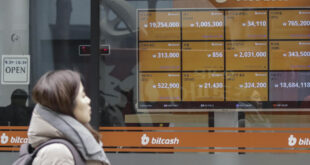By Kevin Yao and Joe Cash
BEIJING (Reuters) -China said on Saturday it will “significantly increase” government debt issuance to offer subsidies to people with low incomes, support the property market and replenish state banks’ capital as it pushes to revive sputtering economic growth.
Without providing details on the size of the fiscal stimulus being prepared, Finance Minister Lan Foan told a news conference there will be more “counter-cyclical measures” this year.
“There is still relatively big room for China to issue debt,” said Lan.
The world’s second-largest economy faces strong deflationary pressures due to a sharp property market downturn and frail consumer confidence, which have exposed its over-reliance on exports in an increasingly tense global trade environment.
A wide range of economic data in recent months has missed forecasts, raising concerns among economists and investors that the government’s roughly 5% growth target this year was at risk and that a longer-term structural slowdown could be in play.
Data for September, which will be released over the coming week, is expected to show further weakness, but Zheng Shanjie, the chairman of the National Development and Reform Commission (NDRC), China’s state planner, said he was “fully confident” that the target will be met.
Fiscal stimulus measures in China have been the subject of intense speculation in global financial markets after a September meeting of the Communist Party’s top leaders, the Politburo, signalled an increased sense of urgency about mounting economic headwinds.
Chinese stocks reached two-year highs, spiking 25% within days since that meeting, before retreating as nerves set in given the absence of further details on the government’s additional spending plans.
Reuters reported last month that China plans to issue special sovereign bonds worth about 2 trillion yuan ($284.43 billion) this year as part of fresh fiscal stimulus.
Half of that would be used to help local governments tackle their debt problems, while the other half will subsidise purchases of home appliances and other goods as well as finance a monthly allowance of about 800 yuan, or $114, per child to all households with two or more children.
Separately, Bloomberg News reported that China is also considering injecting up to 1 trillion yuan of capital into its biggest state banks to increase their capacity to support the economy, primarily by issuing new sovereign bonds.
Additional debt issuance in China is typically subject to formal approval by its rubber-stamp parliament, which is expected to meet in coming weeks.
STIMULUS STEP-UP
The central bank in late September announced the most aggressive monetary support measures for the economy since the COVID-19 pandemic, including numerous steps to help pull the property sector out of a multi-year slump, including mortgage rate cuts.
However, while the measures have lifted Chinese share prices, many analysts say Beijing also needs to firmly address more deeply-rooted structural issues such as boosting consumption and reducing its reliance on debt-fuelled infrastructure investment.
Most of China’s fiscal stimulus still goes into investment, but returns are dwindling and the spending has saddled local governments with $13 trillion in debt.
Lan said Beijing will support local governments to resolve their debt issues, adding that they still have a combined 2.3 trillion yuan ($325.5 billion) to spend in the last three months of this year, including debt quotas and unused funds.
Local governments will be allowed to repurchase unused land from property developers, Lan said.
Low wages, high youth unemployment and a feeble social safety net mean China’s household spending is less than 40% of annual economic output, some 20 percentage points below the global average. Investment, by comparison, is 20 points above.
A private report by recruiting platform Zhaopin showed that average pay offered by recruiters in China’s 38 major cities fell 2.5% in the third quarter from the second.
Swedish furniture retailer IKEA, whose 39 stores in China have felt the spillovers from the property crisis, urged Beijing on Thursday to deploy further stimulus.
(Reporting by Joe Cash, Kevin Yao and Ellen Zhang; Writing by Eduardo Baptista and Marius Zaharia; Editing by Kim Coghill)
Source link
 meganwoolsey Home
meganwoolsey Home



